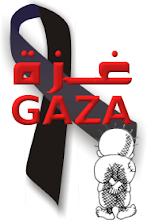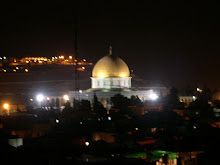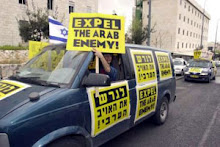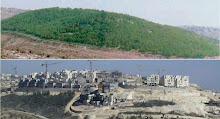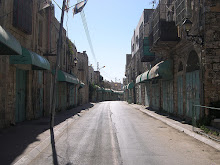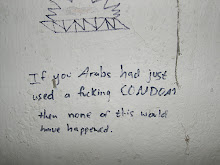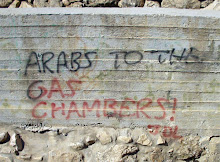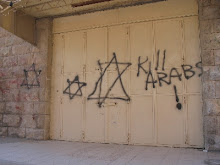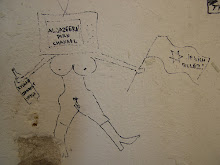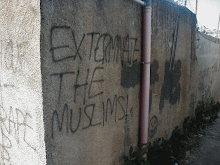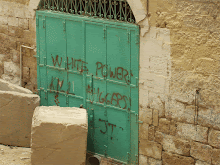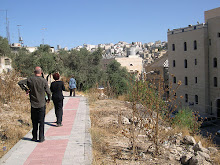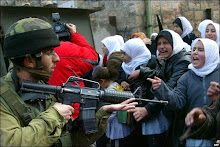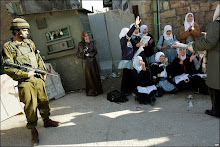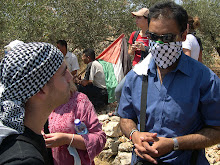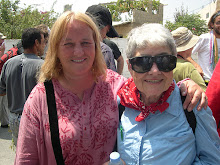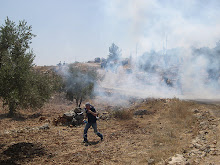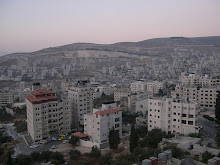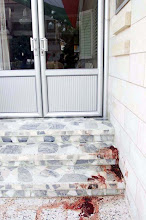 I have been home for three weeks. When I got back I was so exhausted I fell ill. Back to normal now.
I have been home for three weeks. When I got back I was so exhausted I fell ill. Back to normal now.My life has changed forever. What I witnessed in those two weeks in the West Bank will haunt me till I die. I am almost resentful of my idyllic life here, and sometimes I wish I was back in Palestine- my second home.
Some people have told me I was 'brave' to go to such a dangerous place. There is nothing brave about what I did- breathing in a bit of teargas and dodging a few rubber bullets does not make me a hero. I am back in England living my comfortable life, driving my fast car to my secure job. Yet my friends in Palestine are still queuing at checkpoints in the sun, facing tanks and live bullets in the camps, coming home to find their houses demolished, and watching helplessly as the evil Wall and the greedy settlements devour their land.
I have been speaking to friends and family since my return, and they have been horrified by what they have heard. Most of them had no idea how bad things were. A few have criticized me for being 'too one-sided'. In the weeks and months to come, when I do my talks and write my articles, some people will be baying for my blood. I know that. But I couldn't care less. I've been there and I know the truth.
I shall attempt to counter these arguments here.
'There are two sides to every story.' Indeed. May I ask you what the 'other side' to the Iraq war is? Or, for that matter, what was the 'other side' to apartheid? To Nazism? Sometimes, there is a wrong and a right. An oppressor and an oppressed. I know which side I'm on.
'The Palestinians are hot-headed Islamic extremists.' Nonsense. This has nothing to do with Islam. All Palestinians- Muslim and Christian- are fighting a battle for survival. And, by the way, they are a highly educated, cultured and intelligent people, thank you very much.
'Israel has suffered terribly at the hands of suicide bombers.' True. I condemn all violence against civilians, whether they be Palestinian or Israeli. But history did not start with suicide bombings. They only began in the 1990s. While I will never condone them, I am not sure how I would react if I had to watch my mother die while giving birth at a checkpoint. Or if I were forced to see my father strip in public. Or if soldiers stormed my house at 3 in the morning and pumped bullets into my sister. And if I knew that there was no government, army, police or judiciary to fight my corner, I don't think I'd throw flowers at Israeli soldiers.
Do you want to stop suicide bombings? Easy. Make it an equal battle. Give the Palestinians F-16s and Apache helicopters. There is another solution though: stop treating them like animals, and give them justice. Read these powerful words by an Israeli woman who lost her daughter in a suicide bombing: http://peacepalestine.blogspot.com/2006/04/nurit-peled-elhanan-important-words-of.html
'You are anti-Semitic.' Rubbish. I have many Jewish friends in Britain, and now in Israel as well. They are disgusted at what Israel is doing, and are fighting a brave and often dangerous battle, sometimes at the expense of being ostracized by family and friends. The leading critics of Israeli policy- Noam Chomsky, Amira Hass, Ilan Pappe, Norman Finkelstein, the late Tanya Reinhart- are all Jewish.
This is not a centuries-old Jews versus Muslims conflict. It is a matter of basic human rights. If one is criticizing house demolitions, checkpoints, extrajudicial executions etc, and one is accused of being anti-Semitic, then the accuser is bizarre indeed. In order for these criticisms to be anti-Semitic, the accuser has to accept those violations of international law as inherent characteristics of Judaism. So who is being anti-Semitic here?
'There are so many conflicts in the world today- why are you so obsessed with Palestine?' In case you hadn't guessed by now, justice for Palestine is the key to peace in the Middle East. It is a festering sore in the flesh of every Arab; the longer it goes on, the more resentful of the West they become.
Yes, there are many terrible conflicts like Darfur, Somalia, the Congo, Chechnya and Kashmir. But these are relatively recent, while the oppression of the Palestinians has been going on for 60 years. It is the longest ongoing occupation in the world today- and the only one apart from Iraq. And the only one where the oppressor is being financed and armed to the teeth by the 'civilized' world. I went to Palestine at some risk to myself to learn the truth. If your heart bleeds for Colombia, that's admirable. When are you packing your bags then?
'The Palestinian leaders are to blame- look at how corrupt they've been. They've swallowed millions of dollars worth of aid.' Possible. That doesn't give Israel the right to kill, imprison and humiliate Palestinian civilians though. And when the Palestinians did vote out their corrupt leaders, how did the West reward them? With sanctions. Can't win.
'The other Arabs don't help the Palestinians.' This is largely true and should lead us to support the Palestinians all the more for it.
'There are 22 Arab states, why can't the Palestinians go there?' This argument assumes that all Arab/Muslim states are the same, rather than acknowledging the wide variety of cultures, foods, customs and dialects represented by them. By the same logic, if France were to occupy Britain tomorrow, the British should simply pack their bags and move to Italy; after all, Italy is also a predominantly white and Christian country.
Of course, there are many more such arguments and I shall happily answer any queries you may have. Just leave a comment on the blog.
I must go now. There are letters to be written, talks to be prepared and a film to edit. But if my diary has moved you at all, and you wish to join the Palestinian cause, please visit any of the links on the right. But the most important thing you can do is to spread awareness. So forward this blog to as many people as possible. And talk about Palestine. Whenever I asked a Palestinian, 'What is the single most important thing we can do for you?' the answer was always, 'Tell people about us.'
It has been a pleasure to write for you.
Goodbye.
(I have taken some ideas for this entry from the booklet 'Counter-Rhetoric'. It is available from the Israeli Committee Against House Demolitions.)





